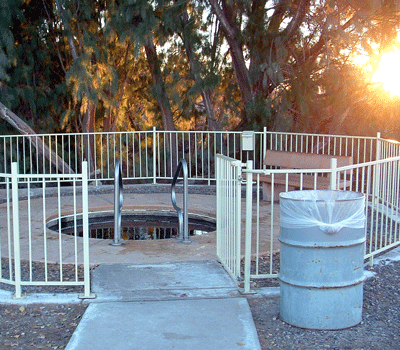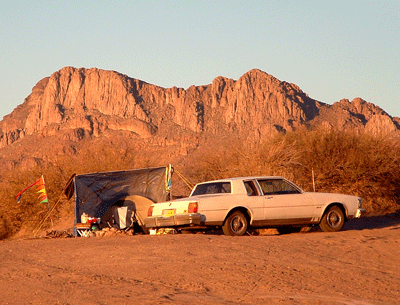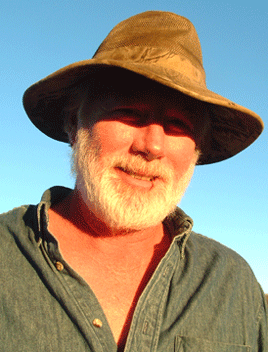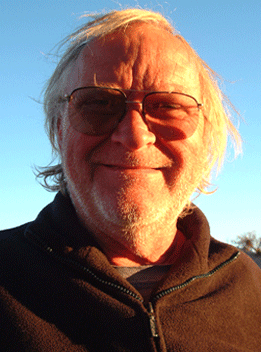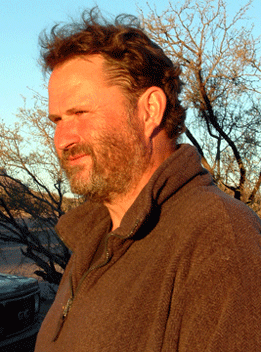Tales of a 21st Century Gypsy
December 18, 2004. Hot Wells Dunes
Several people suggested a stop at Hot Wells Dunes in my travels east. I’d never been to a hot spring – I don’t count the lukewarm swimming pool in Hot Springs, South Dakota, where I did laps one evening. So after getting a lot of complicated directions, I headed there on a blustery afternoon. When I got there the light was almost gone, and I made straight for the tubs. I was assailed by a cheery voice welcoming me and inviting me to join them in the warm water. So I put on my swim suit and settled in.
The two folks in the tub were a youngster traveling across the country and an older local woman who was a friend of his parents. She was sharp and opinionated. She defended the local kids riding ATVs around the sand dunes; would I rather, she asked, they were getting drunk in town and wreaking havoc? When she was a kid, she said, they came out to the dunes and drank and then collapsed where they were for the night. Much better than getting drunk and driving around suburbia to find the next party. She said she was retired from raising five children, but they kept coming back to her house, and every time they returned they’d have picked up another person – a spouse, a child, a second child. She smoked cigarettes as she soaked, leaving the butts by the side of the pond.
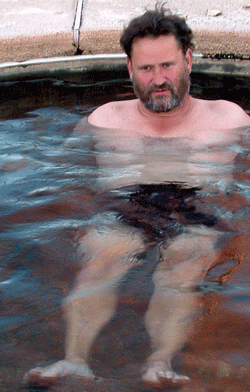
We were joined by a white-bearded man who introduced himself as Jerry. He spends his summers at his log house outside of Davenport, Iowa and his winters traveling with his wife in their fifth wheel – an RV balanced in the back of a pickup truck that tows it. Jerry and I got onto the subject of accessing the internet from our vans, at which the young man told me I absolutely had to have satellite radio, it was just the best. But he wasn’t sure whether satellite radio had all my favorite NPR programs. As I rattled off their names Jerry announced that I was clearly his type, he too needed Morning Edition and All Things Considered and the Car Guys and Garrison Keillor to make his week complete. He mentioned that he’d heard the road into the hot wells was going to be paved next year. The woman reported that locals had taken off the arrow on the road sign to the wells, and they planned to remove the sign altogether so outsiders couldn’t find the place.
